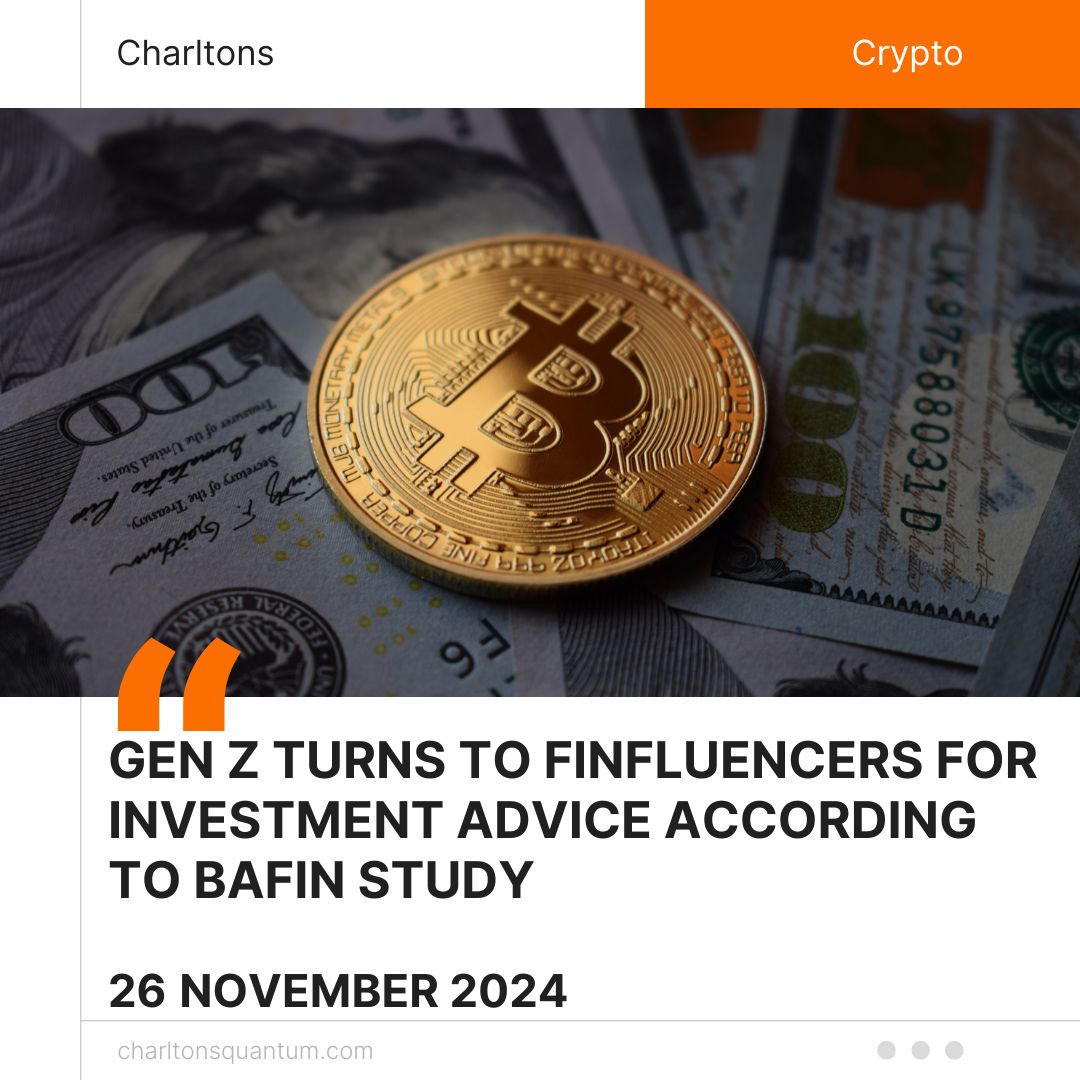
On 16 October 2024, Germany’s Federal Financial Supervisory Authority (BaFin) published a report examining the growing influence of financial influencers—or “finfluencers”—on investment decisions among adults aged 18 to 45. The study sheds light on how younger generations increasingly rely on social media for financial advice, particularly in relation to crypto assets and equities, and explores the associated risks and trends.
The study, conducted in May 2024, surveyed 1,000 individuals aged 18–45 who had invested in the past two years. It revealed that social media platforms like YouTube and Instagram are now major sources of financial information, with more than half of respondents viewing them as reliable. Interestingly, 60 per cent considered social media a viable alternative to traditional financial advice. Those who use social media to research investments were found to diversify their portfolios more, with a marked preference for equities and crypto assets, in comparison to non-users.
The report highlights a generational divide in investment behaviour. Millennials (Generation Y), born between 1981 and 1996, tend to favour conventional assets like call and time deposits. In contrast, Generation Z, born between 1997 and 2012, shows a stronger inclination towards crypto assets and precious metals. Notably, crypto assets have become significantly more popular since 2022, with 32 per cent of respondents investing in them over the past two years, up from just 10 per cent in an earlier OECD study for the same age group. The BaFin study also established a clear link between social media use and crypto investment, with 43 per cent of social media users investing in these assets compared to only 25 per cent of non-users.
Finfluencers play a pivotal role in shaping investment decisions among these generations. More than 50 per cent of respondents reported using financial information from finfluencers, and nearly 90 per cent acknowledged that such influencers offer investment recommendations, primarily for equities and crypto assets. Crucially, 57 per cent of respondents who viewed these recommendations purchased the products directly through links provided by the influencers, while 25 per cent did so elsewhere.
However, the survey also raised concerns about a lack of transparency in the financial advice provided on social media. Many young investors remain unaware of the financial incentives behind finfluencer recommendations. For instance, 37 per cent of respondents were entirely unaware that finfluencers are often paid for their recommendations, while 15 per cent of those purchasing financial products through finfluencer links were unaware of the paid nature of these endorsements.
To address these issues, regulators, including BaFin, have begun implementing measures to bring finfluencers under stricter oversight. BaFin is advocating for mandatory disclosure of paid partnerships and the commissions earned by influencers to ensure transparency in financial promotions. In parallel, the Markets in Crypto-Assets (MiCA) regulation, set to take effect across the European Union, introduces new rules requiring clearer communication of risks associated with crypto investments and greater accountability for promotional content. BaFin has also stepped up its monitoring of online investment campaigns and is collaborating with social media platforms to detect and flag misleading financial advice. These regulatory initiatives aim to strike a balance between protecting consumers from fraudulent schemes and preserving access to credible financial education in the digital space.
In response to these findings, BaFin has urged young investors to exercise caution when following investment advice on social media. While social networks can provide useful insights, they are also rife with misinformation and half-truths. BaFin emphasised the importance of critically evaluating such recommendations and warned against falling prey to fraudulent schemes.
The authority’s website offers comprehensive guidance on recognising and avoiding online investment fraud, including tips on protecting oneself from dubious recommendations and advice on handling cases of fraud. These measures, combined with regulatory efforts, seek to create a safer and more transparent environment for young investors engaging with social media platforms.





